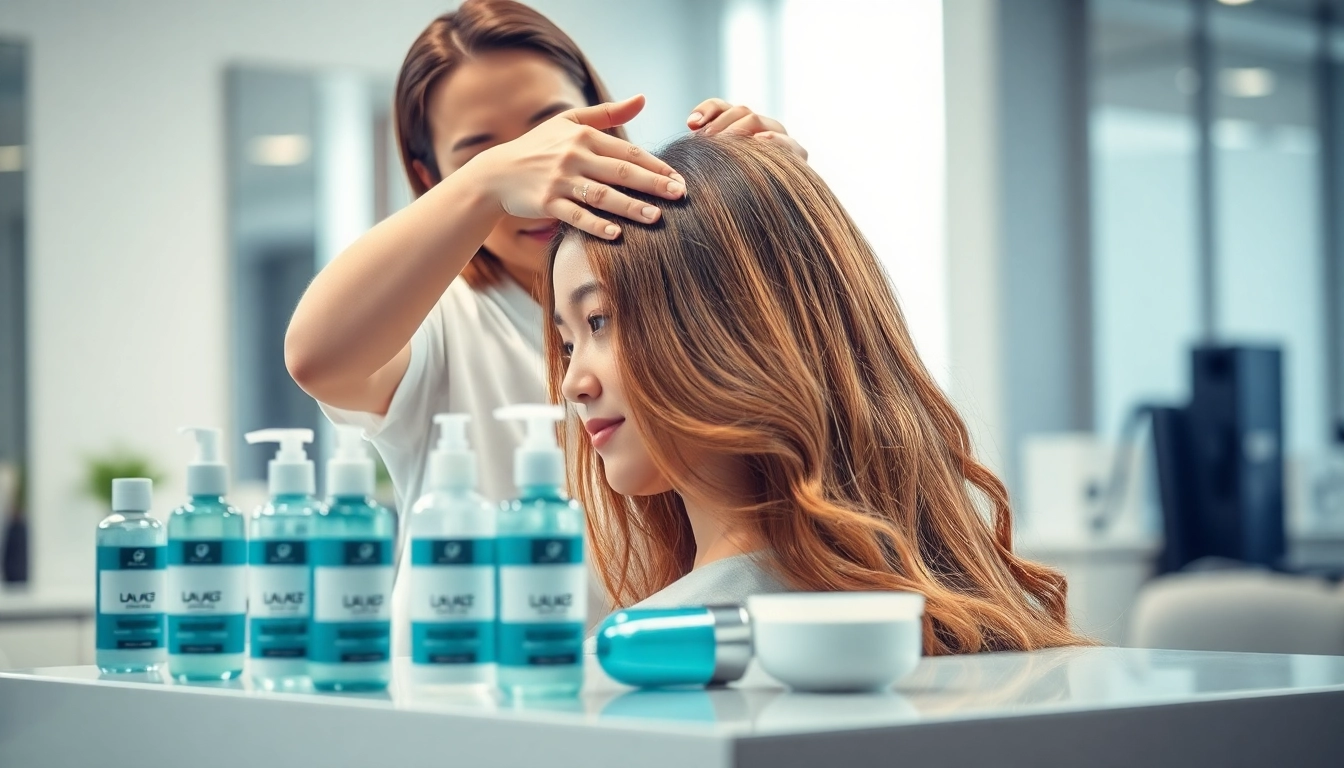Understanding Hair Loss and Its Causes
Hair loss is an issue that affects millions of individuals worldwide. It can result in a significant drop in self-esteem and confidence, leading many to seek effective solutions. To understand how to combat hair loss effectively, one must first grasp its underlying causes and mechanisms. By demystifying hair loss, individuals can make informed choices about products like shampoo best for hair loss, which can play a crucial role in hair health.
Common Causes of Hair Thinning
Hair thinning can be attributed to various factors, both external and internal. Among the most common causes are:
- Hormonal Changes: Fluctuations in hormones associated with pregnancy, menopause, or thyroid issues can trigger hair loss.
- Stress: Physical or emotional stress can lead to a condition known as telogen effluvium, where hair prematurely enters the shedding phase.
- Medications: Certain medications, including those for cancer, arthritis, depression, and heart issues, can have hair loss as a side effect.
- Aging: As individuals age, hair follicles can shrink or become inactive, leading to thinner hair.
- Nutritional Deficiencies: Lack of essential vitamins and minerals, such as iron, zinc, and vitamins A and D, can compromise hair health.
Genetic Factors and Their Impact
Genetics play a significant role in hair loss, with male and female pattern baldness being hereditary conditions. Known scientifically as androgenetic alopecia, this condition affects individuals differently, leading to varying patterns of hair thinning. Genetics may dictate not only if one experiences hair loss but also how severe it may be. Understanding one’s family history can help gauge potential risks and guide preventive actions early on.
Lifestyle Choices Influencing Hair Health
Lifestyle decisions are pivotal in determining overall hair health. These choices include:
- Diet: A balanced diet rich in proteins, healthy fats, and vitamins can significantly contribute to hair strength and resilience.
- Smoking: Cigarette smoke can damage hair follicles and reduce blood flow to the scalp.
- Heat and Chemical Treatments: Frequent use of hot styling tools and harsh hair treatments can weaken hair and contribute to breakage.
- Hydration: Staying adequately hydrated aids in maintaining healthy hair follicles, as hydration is key to overall bodily functions.
Why Choosing the Right Shampoo Matters
The right shampoo can transform the health of one’s hair. With so many available options, selecting a product that addresses specific needs, especially when it comes to hair loss, is crucial.
Benefits of Specialized Hair Products
Specialized shampoos cater to various hair types and concerns. Some of the benefits include:
- Targeted Treatment: Formulas designed to combat hair loss often contain active ingredients that promote follicle health and stimulate growth.
- Strengthening Properties: Shampoos with biotin or keratin can help strengthen existing hair and reduce breakage, preventing further thinning.
- Scalp Health: A clean and well-nourished scalp promotes healthy hair growth, and specialized shampoos support this with ingredients that soothe and hydrate.
Ingredients to Look For in Hair Loss Shampoo
When selecting a shampoo for hair loss, looking for specific ingredients can help enhance the effectiveness of the treatment:
- Minoxidil: Often found in topical treatments, this ingredient is clinically proven to stimulate hair growth.
- Biotin: Known for promoting hair strength and luster, biotin also supports follicle health.
- Caffeine: Some studies suggest that caffeine can stimulate hair follicles and promote growth.
- Natural Oils: Oils like rosemary, jojoba, and coconut nourish the scalp and hair, providing essential moisture.
- Vitamin E: This vitamin is a potent antioxidant that helps maintain a healthy scalp and encourages hair growth.
How Shampoo Affects Hair Growth Cycles
Understanding how shampoo interacts with hair growth cycles is essential. The hair growth cycle comprises three stages: anagen (growth), catagen (transition), and telogen (rest). The right shampoo can positively influence these cycles. For instance, a nourishing shampoo can help prolong the anagen phase, allowing for longer and thicker hair. Regular cleansing removes buildup that can hinder follicle activity, thus contributing to a healthier growth cycle.
Reviews of the Best Shampoos for Hair Loss
With a plethora of hair loss shampoos on the market, reviews can guide consumers in making informed choices.
Top-Selling Shampoos: Features and Benefits
Here is a selection of top-selling shampoos that have garnered positive attention for addressing hair loss:
- Nioxin System 1 Shampoo: Ideal for fine, thinning hair, this product cleanses and enhances the overall appearance of hair.
- Ketoconazole Shampoo: Known for its anti-fungal properties, it helps combat dandruff and improves scalp health, which is vital for hair growth.
- Biotin Shampoo: Enriched with vitamins that promote hair strength and growth, this formula is well-loved by users seeking to revitalize their locks.
- Revita High-Performance Hair Growth Shampoo: Combines caffeine, biotin, and other growth-stimulating ingredients to enhance hair vitality.
Comparative Analysis of Customer Ratings
Ratings provide insight into user satisfaction and effectiveness. Among the various shampoos, products with higher ratings often highlight:
- Visible Results: Many users report noticeable hair thickness and less shedding.
- Scalp Health Improvement: Positive reviews frequently mention reduced dryness and irritation of the scalp.
- Fragrance and Texture: Customers often appreciate pleasant scents and a luxurious feel associated with the shampoo experience.
Case Studies: Real-Life Success Stories
Testimonials and case studies can be powerful motivators for those struggling with hair loss. Consider the story of Emily, a 34-year-old who battled postpartum hair loss. After incorporating a biotin-rich shampoo into her routine, she began to notice a substantial difference within a few months. Similarly, Mike, a college student suffering from male pattern baldness, saw improvements after using a caffeine-infused shampoo that stimulated his hair follicles.
How to Incorporate Shampoo into a Hair Care Routine
The effectiveness of a hair loss shampoo is greatly influenced by how it is integrated into one’s overall hair care routine.
Daily Practices for Optimal Hair Health
To achieve the best results, consider the following practices:
- Consistent Use: Use the shampoo regularly, as recommended, to maintain intended results.
- Gentle Washing: Ensure a gentle massage of the scalp to stimulate blood flow without causing damage.
- Proper Rinsing: Thoroughly rinse the shampoo to remove residues, which can otherwise lead to buildup and irritation.
Combining Shampoo with Other Hair Treatments
For optimal results in treating hair loss, pairing shampoo with other treatments can amplify its effects. Consider:
- Conditioners: Use a conditioner designed for hair loss that complements cleansing formulas.
- Serums: Apply topical growth serums post-shampoo to directly nourish hair follicles.
- Oil Treatments: Essential oils or nourishing hair oils can be massaged into the scalp for added hydration and benefits.
Signs to Change Your Shampoo Choice
Sometimes, a shampoo may not yield the desired results. Look out for:
- Ineffective Results: If hair loss continues or worsens despite consistent use.
- Scalp Irritation: Signs of allergic reaction or irritation may necessitate a change.
- Hair Texture Changes: If hair becomes excessively oily or overly dry, it may indicate an ill-fitting shampoo choice.
Long-Term Strategies for Preventing Hair Loss
While increasing awareness of suitable shampoos is vital, adopting broader strategies can further prevent hair loss and promote healthy hair growth.
Lifestyle Changes for Healthier Hair
Many lifestyle adjustments can contribute to improved hair health:
- Regular Exercise: Physical activity improves circulation and promotes healthier hair growth.
- Stress Management: Practicing mindfulness, yoga, or meditation can reduce stress and its impact on hair.
- Avoiding Heat Damage: Limiting the use of heat styling tools can preserve hair integrity.
Nutritional Support for Hair Growth
Nutrition plays a significant role in hair health. Incorporating these nutrient-rich foods can make a difference:
- Fish: Rich in omega-3 fatty acids, which nourish hair follicles.
- Leafy Greens: Foods like spinach and kale are high in vitamins and minerals essential for healthy hair.
- Eggs: An excellent source of protein and biotin, both are vital for hair growth.
Professional Treatments: What to Consider
When home care methods don’t suffice, professional treatments may be a viable option. Consider:
- PRP Therapy: Platelet-rich plasma therapy involves injecting platelets into the scalp to stimulate hair follicles.
- Laser Therapy: Low-level laser therapy can stimulate hair follicles and promote growth without harming the scalp.
- Hair Transplant Surgery: A more permanent solution for severe hair loss, where hair follicles are transplanted to thinning areas.









